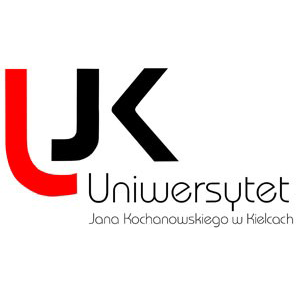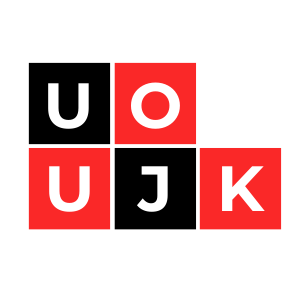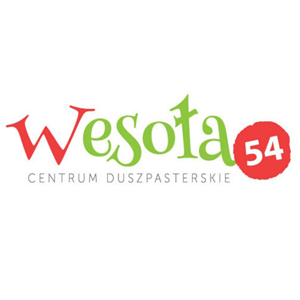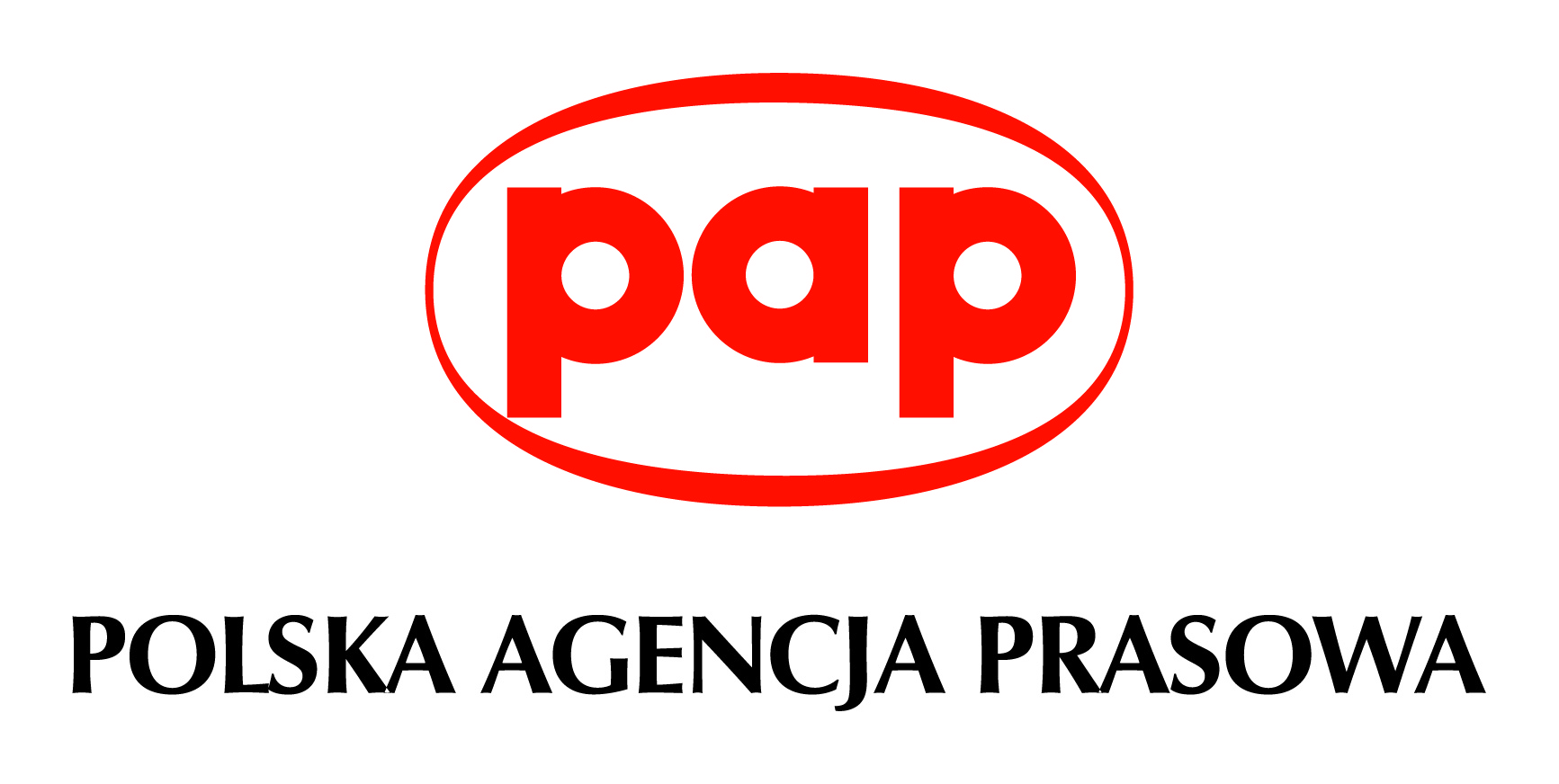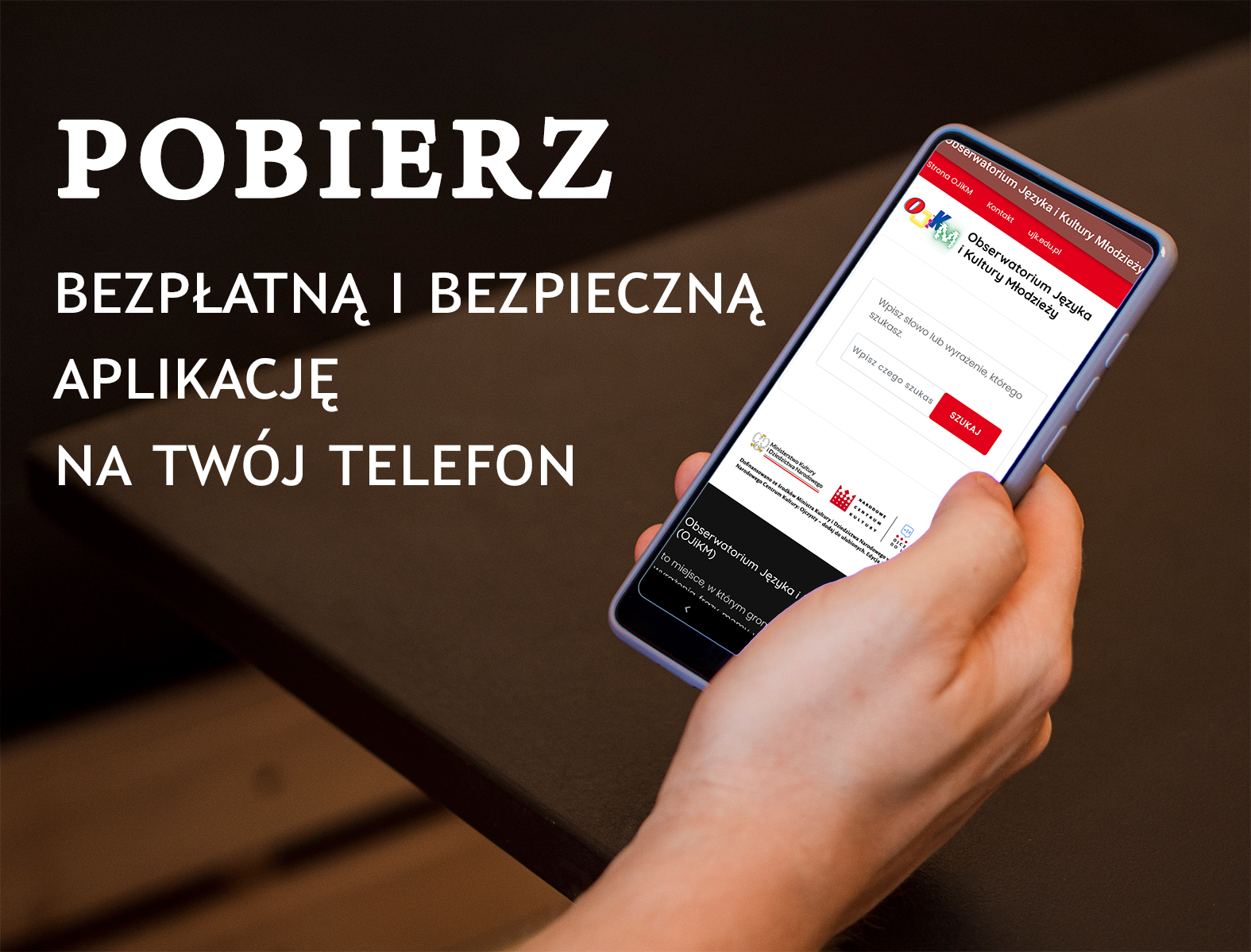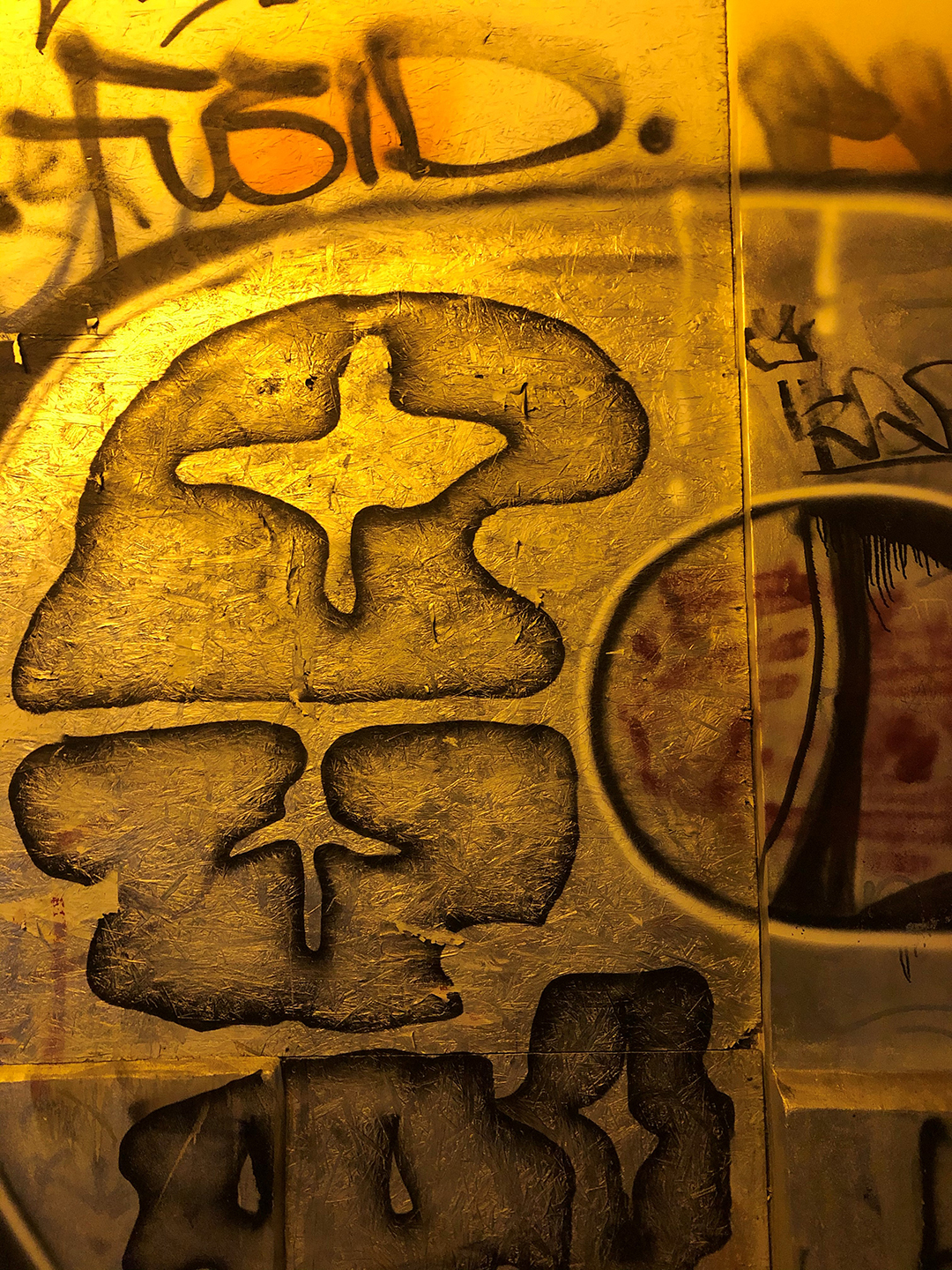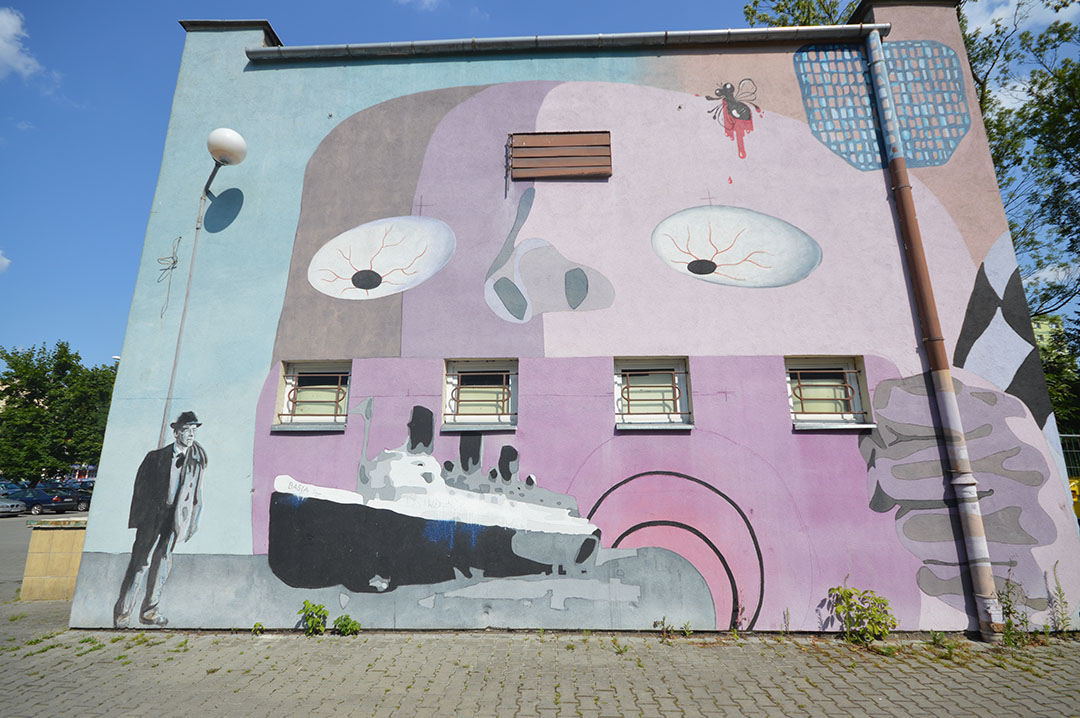About Us
The Observatory of Youth Language and Culture (OJiKM) is a website that collects words, expressions, phrases, memes, and viral phenomena – i.e. semantic units important for communication- and discusses the lifestyle of contemporary young people. The website aims to popularize knowledge about their language, patterns, and ways of participating in culture.
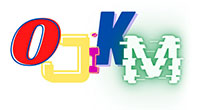 Young people have to navigate many socio-cultural roles. They are students, participants in family life, peers, members of many virtual communities, fans, consumers, prosumers, and modern “influencers” who impact other people’s lives. Such participation in culture is accompanied by the “production” of many words, signs, texts, and images, which are born as a result of relationships and activities undertaken in both direct and digitally mediated communication. Some are ephemeral, while others last longer, first entering the colloquial language, and then the standard language. They reflect not only the creativity of young people, the dynamics and quality of cultural change but they also allow us to understand the way young people perceive the world. They document the standards of going through youth and the influence of young people on contemporary culture. For this reason, the Observatory may prove to be a helpful website for linguistic and cultural inclusion and for eliminating intergenerational barriers.
Young people have to navigate many socio-cultural roles. They are students, participants in family life, peers, members of many virtual communities, fans, consumers, prosumers, and modern “influencers” who impact other people’s lives. Such participation in culture is accompanied by the “production” of many words, signs, texts, and images, which are born as a result of relationships and activities undertaken in both direct and digitally mediated communication. Some are ephemeral, while others last longer, first entering the colloquial language, and then the standard language. They reflect not only the creativity of young people, the dynamics and quality of cultural change but they also allow us to understand the way young people perceive the world. They document the standards of going through youth and the influence of young people on contemporary culture. For this reason, the Observatory may prove to be a helpful website for linguistic and cultural inclusion and for eliminating intergenerational barriers.
Therefore, we invite you to co-create the website and submit your proposals for semantic units that, in your opinion, have an impact on contemporary language and youth culture. They will be analyzed by the Observatory team and posted on this website. Details – in the tab: Applications.
Uwaga: Wszystkie cytaty, wskazujące na konteksty użycia i specyfikę znaczeniową opisywanych jednostek semantycznych, są podawane w zapisie oryginalnym.
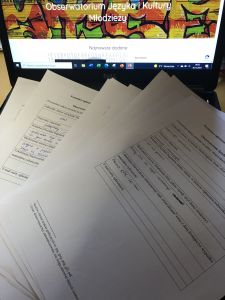
The Observatory of Youth Language and Culture was established as a result of the project: Przejrzysty ojczysty. Przez młodomowę do współczesnej kultury”, which was co-financed by the Ministry of Culture, National Heritage and Sport as part of National Centre for Culture Poland program : Ojczysty – dodaj do ulubionych 2021.
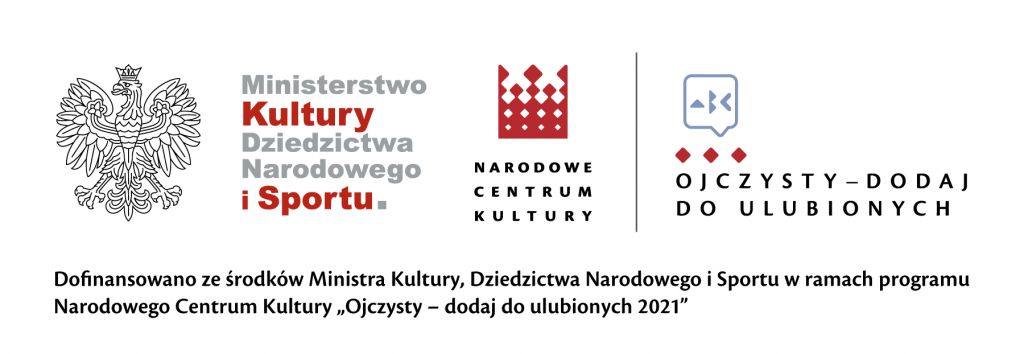
The website of the Observatory of Youth Language and Culture has been modernized as part of the project: „Młode słowa i nowe trendy. Obserwatorium Języka i Kultury Młodzieży – wchodzisz i wiesz”, which was co-financed by the Ministry of Culture and National Heritage as part of the National Centre for Culture Poland program Ojczysty – dodaj do ulubionych 2024.

The Observatory Team
Project Manager
- dr habil. Anna Wileczek, Professor at Jan Kochanowski University in Kielce (linguistics, sociolinguistics, educational discourse), anna.wileczek@ujk.edu.pl
Scientific Secretary
- dr habil. Joanna Senderska, Professor at Jan Kochanowski University in Kielce (linguistics, sociolinguistics)
Members
- Monika Bator, PhD (cultural studies, literary studies)
- dr habil. Marzena Marczewska, Professor at Jan Kochanowski University in Kielce (linguistics, ethnolinguistics)
- Agnieszka Rosińska-Mamej, PhD (linguistic pragmatics)
- Monika Wojtkowiak, PhD, Jan Kochanowski University in Kielce (pedagogy)
- Zuzanna Bogucka, M.A., Doctoral School of Jan Kochanowski University in Kielce (linguistics, PhD)
Youth Contact Coordinator
- Anita Jagun, M.A., Doctoral School of Jan Kochanowski University in Kielce (English Studies, PhD)
Youth Council
- Zuzanna Salwa (chair)
- Maciej Barteczko (vice chair)
- Gabriela Siodłak
- Aleksandra Gawior
- Amelia Zagulska
- Filip Gidel
- Jakub Mamej
- Katarzyna Kwas
- Marcel Wątor
- Nadia Bis
- Natalia Wojciechowska
- Oliwia Świtek
- Victoria Skóra
- Julia Łukasik
- Kacper Binkowski (graphics)
Project Partners
- Dominika Czarnota-Zdybicka, M.A. (pedagogy) (until 01.07.2024)
- Paweł Góral, lingwistyka stosowana, student (Applied Linguistics)Joanna Kozub, M.A., Zbigniew Kruszelnicki “Wilk” Primary School No. 18 in Kielce (Polish Philology)
- Jakub Kostecki, student (Applied Linguistics)
- Maja Moskwa, M.A., C. K. Norwid III High School with Integration Classes
- Piotr Pisiewicz, M.A., Impakt (cultural animator)
- Anna Sobieraj, M.A. (Polish Philology)
The Observatory also cooperated with:
- Dominika Czarnota-Zdybicka, M.A. (pedagogy) (until 01.07.2024)
- Anna Róg, PhD (Social pedagogy) (until 01.09.2023)
- Bartłomiej Kotowski, PhD, Jan Kochanowski University in Kielce (Cultural Anthropology) (until 01.09.2023)
- Marcin Dzikowski, M.A., Natalia Machalowa Primary School No. 20 in Kielce (Polish Philology) (until 01.09.2023)
- Izabella Magdziarz-Ryśkiewicz, M.A., Natalia Machalowa Primary School No. 20 in Kielce (Polish Philology) (until 01.09.2023)
- Monika Olędzka, M.A., University of Natural Sciences and Humanities in Siedlce, IJiL (linguistics; literary criticism); Upper Secondary School Complex No. 2 in Siedlce named after Nicolaus Copernicus (until 01.09.2023)
- Piotr Raczyński, M.A. (pedagogy) (until 31.01.2022)
- Małgorzata Pietrzykowska, M.A. (pedagogy) (until 01.07.2024)
- Rafał Skrok, M.A., Jules Verne School Complex in Kielce (Polish Philology) (until 01.09.2023)
Partners
- Institute of Linguistics and Literary Studies at Jan Kochanowski University in Kielce
- Open University of Jan Kochanowski University in Kielce
- „IMPAKT” Association
- Wesoła 54 Association
- Regionalne Centrum Wolontariatu
- „Szansa – Jesteśmy Razem” Foundation
- PWN Scientific Publishing House – The Youth Word of the Year plebiscite
Translation team
- Anita Jagun (coordinator)
- Martyna Jędrasik
- Katarzyna Kopeć
- Natalia Chachurska
- Julia Piekielniak
- Natalia Walas
- Oskar Zapora
- Kacper Szczęsny
- Damian Bernacki
- Jakub Makuch
 English
English Polski
Polski